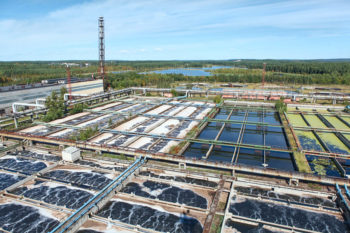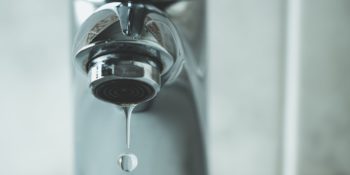Curing water and fuel poverty
Around three million households in the UK already need support with essential utility bills and that’s before energy costs are predicted to rise dramatically. Currently, suppliers have no coordinated database identifying these customers, meaning that people experiencing financial vulnerability are forced to explain their position multiple times to different utility companies to seek the support they need. This is not only time consuming, but for many people an embarrassing process at a moment of great stress.
Water4All, a new initiative led by Southern Water, hopes to overcome this by collaborating with other major utility companies and data specialists to create and introduce a central database for customers experiencing financial vulnerability. This would enable multiple suppliers to know who needs their help and proactively approach them to provide support – saving the customer embarrassment, significant expense across their bills and reducing their carbon footprint through smarter water use.
Furthermore, the Water4All programme identifies where these customers are missing out on additional income. Help provided through an income maximisation service will provide an average of £2,500 per year of additional tax-free income. This should be sufficient to cover the cost of the current cost of living crises. In addition, eligible households will gain free eco measures to reduce their bills further. Water4All is accessing some of the estimated £15 billion unclaimed benefits sitting in HM Treasury to put directly into customers’ pockets.
Recent research suggests that only 6% of people who need financial help reach out, partly due to embarrassment and partly because many aren’t aware that help is available. If customers can be helped sooner, they could avoid even deeper debt by accessing support across their utility providers, altering their water habits and becoming more environmentally friendly in the process.
Much of the data needed for the project is available – Water4All will put the pieces together and make them available in a usable format to the industry. As part of this, data solutions company Sagacity will work with multi-sector experts to combine industry knowledge and deep domain expertise with data, for instance, from credit bureaus and Land Registry.
Using this information, the Water4All database can build customer profiles that identify financially vulnerable people and share this with other utility industries such as energy, telecoms and financial services. This innovative and complex solution will enable suppliers to work together in supporting people who are struggling – reaching them in the right way, at the right time.
If companies are unaware that a customer is financially vulnerable, they can’t help, but if they know, they can help and charge customers accurately to prevent unexpected costs. The initiative works on the principle of seek and serve – where the utility companies will identify financially vulnerable individuals, offer help, and save them the worry of repeatedly communicating their situation to multiple suppliers.
The project is in its early stages, having just secured funding for the proof-of-concept element, but it holds great potential to help customers who typically do not reach out or reach out after one year of needing the help. The innovators believe they could help financially stressed customers save up to £2,500 on bills and secure new benefits from better tariffs, water and energy-saving advice and efficiency measures, such as spread-out payment plans.
By helping customers access the full range of support available to them across their utilities, Water4All works towards a sustainable future for everyone – contributing towards customers’ financial wellbeing and promoting more environmentally-friendly water habits.
Don’t work in the water industry but want to get involved? The Water Discovery Challenge will be welcoming groundbreaking innovations from anyone in any sector from January 2023. Find out more here: https://waterinnovation.challenges.org/water-discovery-challenge/
Get more #WaterInspiration by finding out more about previous winners of our innovation competitions at https://waterinnovation.challenges.org/winners
If you would like help partnering with water companies, speak to the UK water industry accelerator – Spring (also a previous winner of our innovation competition). If you have an existing product or service and are interested in becoming a supplier to companies, speak to British Water or the Future Water Association.






